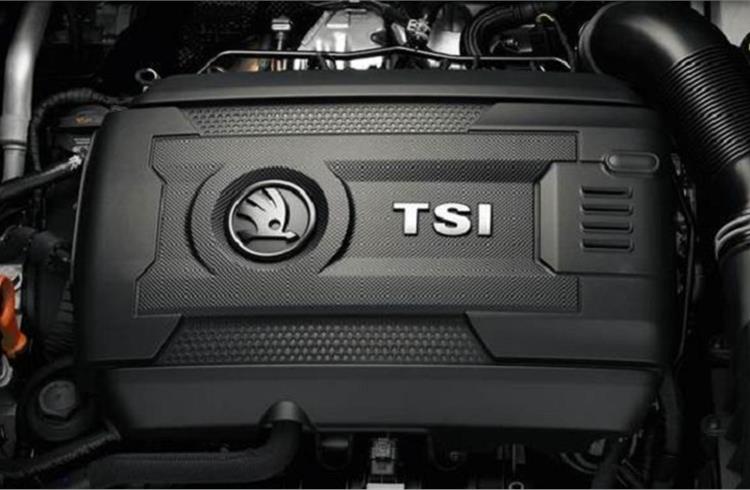Skoda CEO confirms localisation of VW 1.0 TSI petrol engine
Volkswagen Group's advanced 999cc, three-cylinder turbo petrol will power the next generation of cars and SUVs from Skoda India and Volkswagen Group India.
The Volkswagen Group's sophisticated 1.0-litre, three-cylinder turbocharged petrol will be localised as part of Skoda's plans to develop India-specific models with a high level of local content, according to Skoda CEO Bernhard Maier. With an eye on doubling the market share for both itself and Volkswagen, the Czech carmaker aims to break into the Indian market with a renewed focus after it was recently tasked with assuming the lead role for the Volkswagen Group's operations in India.
"Our 1.0 TSI petrol is a very cost-efficient engine and we are going to build it in India in the future," Maier told Autocar India in a recent interview after the announcement of the 'India 2.0' project.
The three-cylinder turbo-petrol belongs to the EA 211 family and is available in two states of tune – 94hp and 115hp. The direct-injection unit is more compact, lighter and generates less friction, thus operating more efficiently. The engine powers a range of VW Group's cars such as the new Polo, Skoda Fabia and Karoq, and will replace the current 1.6 MPI and the 1.2 TSI motors.
Also, VW’s original plan to localise the 1.5-litre EA189 diesel has been scrapped. The engine, which was at the centre of the diesel emission scandal, will be phased out once India adopts the BS-VI emission norms in April 2020.
The carmaker does have a larger 2.0-litre diesel, but the unit would be unviable in a small car. As a result, the small cars from both VW and Skoda brands will have only a petrol engine.
Maier says the larger diesel will continue to play a significant role in the group's larger models. "Diesel will play a decisive role in the future but more for bigger cars such as the Octavia, Superb or Kodiaq," he said, adding that making the 1.5 diesel compliant for small cars in India will be expensive and price the models out of contention. "Although diesel is a very good alternative, the after-treatment will become expensive and will not serve for smaller cars in the future in India. But we have very competitive petrol engines," Maier said.
Under the ‘India 2.0’ project, the company is targeting a localisation level of over 90 percent with the India-specific MQB A0-IN platform that will spawn models for both Skoda and VW. Work is already underway on the first model based on the new platform for India, which will be a mid-sized Creta rival that is expected to roll out in 2020.
RELATED ARTICLES
Bosch hydrogen engine tech-powered truck to be on Indian roads this year
The global supplier of technology and services is betting big on both electromobility and hydrogen. While announcing the...
IIT Bombay inaugurates Arun Firodia Research Floor
IIT Bombay, one of India’s top technical and research institutions, honours Kinetic Group chairman Dr Arun Firodia, one ...
Maruti Suzuki expands capacity at Manesar plant by additional 100,000 units
New assembly line at Plant A expands total manufacturing capacity at the Manesar plants to 900,000 units per annum. Alon...





 By Autocar Pro News Desk
By Autocar Pro News Desk
 06 Jul 2018
06 Jul 2018
 7660 Views
7660 Views









